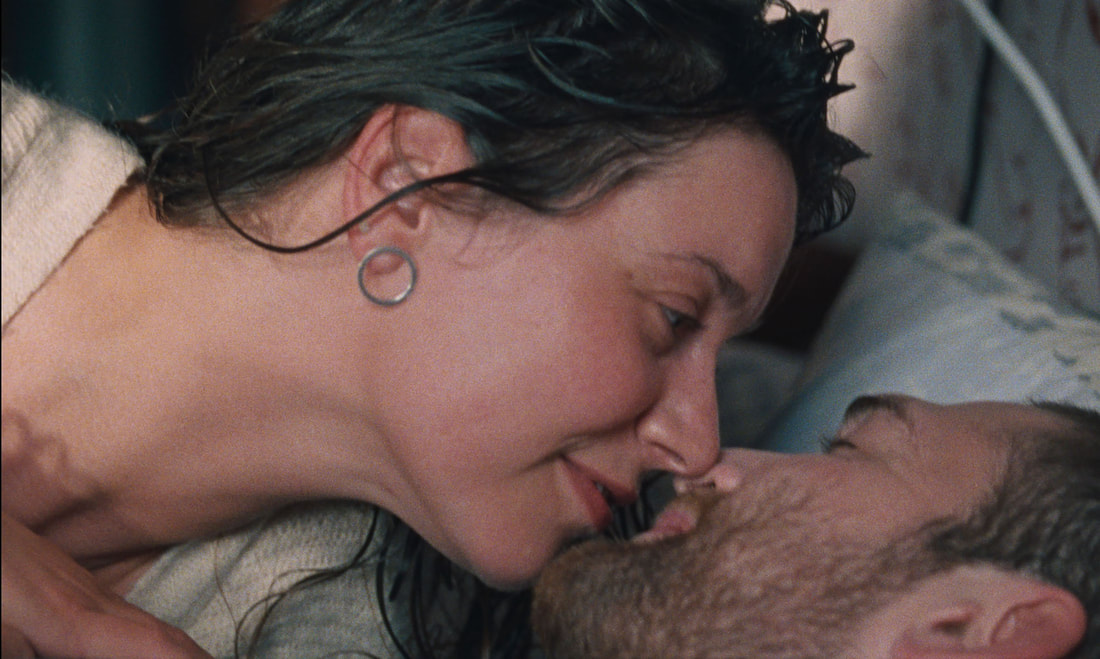|
Review by Sean Boelman
These days, it’s hard to find a film that does something that has never been done before — or at least has hardly been done — and the Lithuanian movie Slow is the one-in-a-million film that does. A lovely movie boasting historically great representation, this is a film that scholars of queer cinema will be appreciating for years to come.
The film follows a dancer and a sign language interpreter who form an unexpected connection, developing a unique kind of bond and intimacy when he reveals his asexuality. It’s a very low-key romance, the likes of which we have seen in worldwide cinema for years, but with a wonderfully refreshing perspective. The main quality that makes this movie stand out is the enormously authentic way in which it depicts asexuality. Unlike a lot of previous representations, which tend to show asexuality not as a sexual orientation but the lack thereof, Kavtaradze’s script shows the complexity of the emotions an asexual person experiences. As such, this film is a monumental stride for LGBTQIA+ representation. Of course, it isn’t perfect, but few groundbreakers are. The characters — particularly the allosexual love interest — make some decisions that are extremely frustrating. And the movie does sometimes begin to fall into slightly melodramatic trappings, most noticeably during the third act, in which a few scenes do feel somewhat forced for the sake of pushing the story forward. Still, the film manages to be an extraordinarily compelling romance. The first hour or so, which focuses on the courtship and budding love between the characters, is absolutely adorable. When things begin to become more complicated — as they always must in a romance, or else the conflict isn’t there — it’s reliably heartbreaking. Greta Grineviciute and Kestutis Cicenas have tremendous chemistry together, which is impressive considering that they are convincing despite the removal of sexual tension from the equation. Instead, they have to convince us of a deeper love, transcending physicality into something more purely emotional. From a technical level, Kavtaradze’s style is very polished, elevating this even further beyond the basics of the genre. The way in which Kavtaradze creates intimacy without sex is virtually unprecedented, using small gestures of affection and body language to beautifully communicate the emotion of the story. Slow gets a lot of points if only because its themes are so revolutionary, but what makes it truly amazing is that it’s a beautiful movie even beyond that. Marija Kavtaradze has made a fantastic romance that deserves to become a part of LGBTQIA+ film canon. Slow is playing at the 2023 Sundance Film Festival, which runs January 19-29 in-person in Park City, UT and January 24-29 online. Rating: 4.5/5
0 Comments
Leave a Reply. |
Archives
July 2024
Authors
All
|
|
|
disappointment media
Dedicated to unique and diverse perspectives on cinema! |

